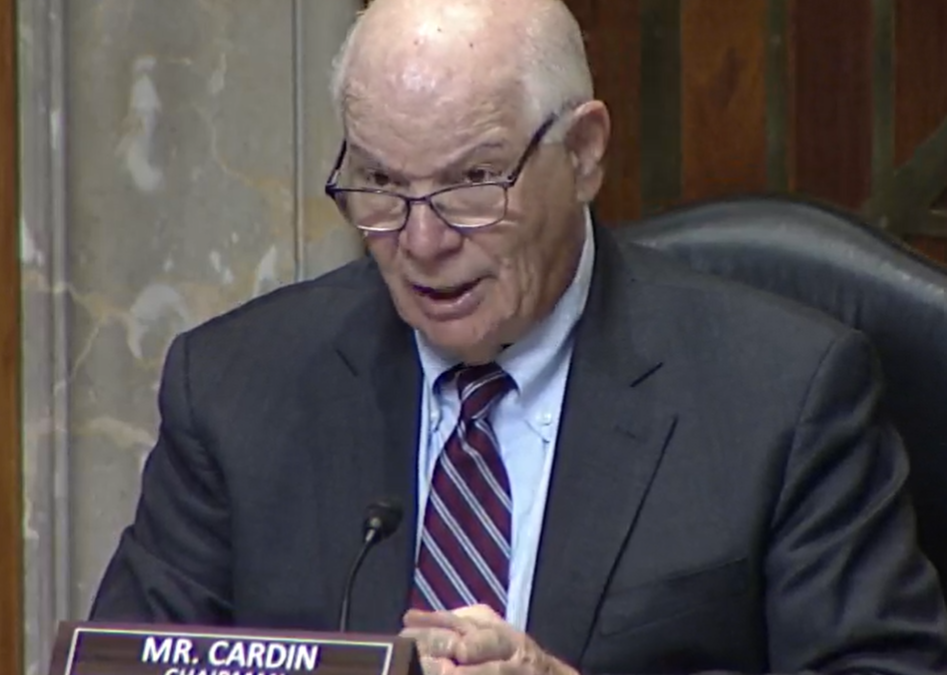WASHINGTON — Republican and Democrat senators criticized the Biden administration Tuesday for being slow to call a July military takeover in Niger a coup if the U.S. wants to deter future coups in West Africa.
“It’s important for the U.S. to take a principled stance when coups occur,” said Sen. Ben Cardin, D-Md. “We need to make our position crystal clear, military takeovers of civilian-led governments are coups.”
Whether or not the U.S. calls a coup a coup is not just a question of semantics. Taxpayer money is on the line because under U.S. law, the U.S. must suspend most funding to a country after a coup.
The United States supplies governments in Africa with foreign aid with the goal being to stabilize those countries and facilitate a partnership with the U.S. However, the U.S. suspends funding to a country if the country goes through a coup leaving beneficial partnerships with a country like Niger on hold.
The State Department concluded on Oct. 10, three months after the event, that a military coup took place in Niger and suspended $200 million of foreign assistance to the country. But in the hearing Tuesday morning, senators from both parties had questions about why the Biden administration did not formally designate the incident in Niger a coup sooner and why the administration has not applied sanctions to the government.
“Anyone engaged in coups should be personally sanctioned,” said Cardin, who also chairs the foreign relations committee. “The failure to sanction, a policy shift that is clearly taking place here in our government, [it] sends the wrong message.”
President Mohamed Bazoum was ousted from office and detained by the presidential guard of Niger on July 26, with general Abdourahamane Tchiani declaring himself leader of the military junta installed afterward.
“Violent incidents in Niger, which had been declining significantly due to President Bazoum’s leadership and the partnership between Niger’s security forces and U.S. and European forces rose by 42% in the month after the coup,” said Molly Phee, the State Department’s assistant secretary of the bureau of African affairs.
She stressed that the U.S. avoided calling the seizures of power a coup after requests from its allies in the region.
“Although we promptly paused the majority of U.S. assistance for Niger after the coup, we delayed, at the request of our African partners, declaring that the incident constituted a coup as they sought to restore President Bazoum to office,” she continued. “Our friends and partners including the leaders of Ghana, Senegal, Côte d’Ivoire, and Nigeria all asked us to delay making our formal assessment because they were fully committed to restoring President Bazoum to power and they thought that our statement would derail their efforts.”
Sen. Pete Ricketts, R-Ne., and Sen. Tim Kaine, D-Va., were not satisfied with Phee’s explanation about why the Biden administration waited to declare the incident in Niger a coup.
“There was no explanation as to why it’s taken so long, not only in Niger, but Gabon as well,” said Ricketts. “That is something we can do quickly even if we are going to delay some of the sanctions.”
“The members of the committee are still puzzled, why did it take so long to do the coup designation and why haven’t sanctions been imposed,” said Kaine. “And I don’t think those questions were answered to the committee’s satisfaction.”
Kaine was less certain on whether the Biden administration needed to implement stronger sanctions against Niger.
“Occasionally there are coups that take place by an actor that wants to seize power and hold on to it, and occasionally there are coups that take place by an actor that believes the government was illegitimate and they are committed to a process to return democracy and have elections,” Kaine said.
“If the actors are committed to returning to a popularly elected democratic government, that is a little bit of a different thing than if somebody seizes power and intends to hold it for as long as they can,” Kaine continued.
Phee said the state department is pressuring the government of Niger to “get on a serious, credible path” back toward democracy, if they want the partnership with the United States to continue.
“If the State Department is going to say we are going to work with Niger to turn the government back to civilians, we need to set a deadline and say if you don’t do it by this point, we’re going to have some strict sanctions and I didn’t hear any of that today from the State Department,” said Ricketts.
Seven nations in the Sahel region and the west coast of Africa have suffered coups since 2020, including Mali, Chad, Guinea, Sudan, Burkina Faso, Niger and Gabon. Mali and Burkina Faso have seen two coups each since 2020.
“If our policy is that we don’t want to see more coups, then we ought to be having a consistent policy on enforcing sanctions and at least setting up a framework,” said Ricketts. “If you look at the pattern of coups in Africa, what we are doing is not working.”


